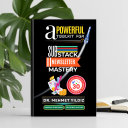The Psychology of Emerging Technology: How Big Data, AI, and Cognitive Science Shape the Future of Human Minds and Intelligent Systems
About this ebook
Witnessing this moment compelled me to expand my long-developed manuscript on the psychology of technology into a book, one designed to offer scholars, practitioners, and the public a coherent framework for understanding and influencing these profound transformations.
For over four decades, I have worked at the intersection of cognitive science, neuroscience, technology, and psychology as a researcher, educator, and emerging technology leader in global enterprises. I have witnessed firsthand how emerging technologies both expand and challenge the way we think, decide, learn, and live.
The Psychology of Emerging Technology is the culmination of this lifelong work. It defines and fills a critical gap in an emerging discipline: understanding how rapidly evolving tools, from Big Data and IoT to AI, cloud ecosystems, virtual reality, and wearable technology, reshape cognition, behavior, and mental well-being at individual, organizational, and societal levels.
Grounded in real-world leadership experience and academic research, I have written this book for PhD students, researchers, policymakers, technologists, enterprise leaders, and critical thinkers who seek more than surface-level commentary. Through case studies, cognitive models, and tested frameworks, it blends the precision of science with the insight of lived practice.
At its core is my MINDTECH™ framework, which stands for Mapping Innovation, Integrating Neuroscience, Navigating Data, Designing Technology, Testing Ethics, Empowering Cognition, Cultivating Humanity, and Harnessing Futures. This original framework unites technical imperatives with cognitive and ethical outcomes, making it as relevant to AI architects as it is to educators, policy experts, and superlearners.
Supporting MINDTECH™ are two additional frameworks:
S.P.A.R.K.S.™: Scalable, Predictive, Adaptive, Resilient, Knowledge-Driven, Secure. Links each technical requirement to measurable business and societal outcomes, ensuring solutions are robust, flexible, and trustworthy.
S.E.E. Model: Signal, Experience, Ethics. Guides technology assessment for the AI era, ensuring accurate signal interpretation, meaningful human experience, and responsible governance.
The Pillar Framework structures the book into four parts: Concepts, Systems, People & Practice, and Applications & Futures, while the SMART MIND Loop™ integrates cognitive optimization strategies, ensuring ideas are understood, retained, and applied.
You will explore:
How social media rewires attention and emotional processing.
Why immersive VR and digital therapeutics can both heal and harm.
How AI systems influence trust in human–machine collaboration.
The risks of algorithmic bias, privacy erosion, and inequitable access, and how to address them through design and governance.
And it will include more topics in the psychology of technology domain.
Every chapter closes with actionable insights and reflection questions to bridge knowledge and application. My aim is not only to explain how technology shapes the mind, but to equip you with tools to design, implement, and govern systems responsibly.
This is a book for those who want to lead with technical excellence, ethical responsibility, and cognitive wisdom, a guide for shaping the future of AI, data, and digital innovation without losing sight of the people it is meant to serve.
About the author
Dr. Mehmet Yildiz is a cognitive scientist, advanced researcher, and seasoned technologist who has worked as a Distinguished Enterprise Architect, certified by The Open Group, on multi-billion-dollar projects until 2021. With over 45 years of experience in the IT and healthcare industries, working on complex enterprise projects for large corporate organizations such as IBM, Siemens, and Microsoft, he focuses on cutting-edge technology solutions.
He is a seasoned writer and the author of 40+ books on technology, health, science, and content development, combining decades of experience in science, technology, enterprise architecture, and corporate business leadership. With an academic, research, innovation, and invention background, Dr. Yildiz has made significant contributions to content creation, marketing strategy, and digital innovation.
As the chief editor and owner of 17 prominent publications on Medium, he has built a thriving community of over 37,000 writers, supporting them in their creative journeys. His expertise extends to Medium and Substack, where he continues cultivating a large, engaged community, guiding writers to discover their unique voices, grow their audiences, and develop sustainable newsletter-based businesses.
In addition to his prominent publications on Medium, owning several personal and professional networks on Substack, including health and wellness, technology excellence and leadership, content marketing insights, Substack Mastery Boost Pilot, a book club for authors and avid readers, and ILLUMINATION Writing Academy, he gained over 235,000 subscribers as of June 2025.
In his recent educational books Substack Mastery V2, Advanced Substack Newsletter Toolkit, and Smart Email Marketing & Content Integration, Dr. Yildiz distilled decades of tacit knowledge into actionable insights, offering creators, bloggers, freelance writers, and startup founders practical strategies to succeed in today’s competitive digital landscape. He emphasises the importance of SEO in his education programs and books related to content marketing strategies.
You can connect with the author on several platforms linked to his website, digitalmehmet.com.
You can check the updates on the Official Page of The Psychology of Emerging Technology hosted on Digitalmehmet Content Ecosystem, aggregated by curated sources from Medium.com, Substack.com, and Patreon.com.







